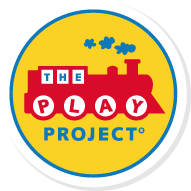Autism & Kindergarten Readiness*
Richard Solomon, MD
Is Jacob Ready for Kindergarten?
Jacob Grant (name changed) is five years old with a birthday in December. The family arrives at my developmental and behavioral pediatrics practice for some advice. They live in Michigan. Jacob has had an excellent, comprehensive, and intensive intervention program for the last two years including:
- Public special education pre-school services from the school district with an Individualized Education Plan (IEP) – 4 half days/week
- Private speech/language therapy (1 hour/week)
- Private occupational therapy (1 hour/week)
- Applied Behavior Analysis (ABA) (12 hours/week)
- A parent coaching model (parents play with him for 8-10 hours/week)
Jacob has made very good to excellent progress. He can answer simple wh-type questions like “What”, “Where”, and “Who”. He enjoys simple pretend play like chase, feeding a puppet, having dinosaur fights, and driving his Thomas the Tank Engine around the track. His engagement has improved to the point where he readily turns to his name, enjoys playing with his little brother, and can follow requests to ‘go get’ things and ‘bring them’ to his parents. He likes books but has a hard time understanding the plot. He is not asking or answering ‘Why’ questions.
It’s January and Jacob’s IEP meeting with the school to determine his services for the coming year is coming up in the next two weeks. The parents want my help in deciding the big question: ‘Should Jacob go to kindergarten?’ The school is recommending kindergarten with at least half of his day in an autism classroom because Jacob will be six in December, but the parents aren’t so sure this is the best for him. He’s doing great in the pre-school and they think he should go one more year to give him more time to mature. They want to keep his current IEP i.e. stay in pre-school, but adjust his learning goals to reflect his progress. Luckily Jacob is not going to be six until December. So he doesn’t have to go to kindergarten by law in Michigan (other states have other rules for mandatory schooling).
What is an IEP?
An IEP is an Individualized Education Plan. This is the legal document that describes the special educational services for children beginning at age three and continuing until they are done with public schooling. Parents need to know all about the IEP process and how to make the important and often difficult decisions that affect their child’s schooling. For valuable information on IEPs we recommend the following book and website:
- Book:
- Website:
Jacob’s parents are facing one of the most common questions for five year olds with autism and his parents need to know their rights before they go into that IEP meeting!
Know Your Rights!
The IDEA Laws (Individuals with Disabilities Education Act) are federal laws that establish guidelines for early intervention and special education services provided in all states in the United States. A few of the most important components of the law include:
a). Free and appropriate education (FAPE) i.e. your child’s education must be free and appropriate to your child’s educational needs.
b). Least restrictive environment i.e. your child has the right to be with other typical children in a general education setting. The school wants Jacob in an autism classroom part of the day. Parents can choose a more ‘restrictive’ setting like a smaller classroom with other children with similar disabilities and a special education teacher. But they don’t like that idea at all.
c). Individualized education plan (IEP) that is your agreement with the school for their individualized education program. The IEP has two main parts. The first part is about the types of services your child will receive. The second part has to do with the educational goals for your child. Jacob’s parents want pre-school as his type of service and they want his goals adjusted to reflect his progress.
d). Advocacy. If parents don’t like what the school is doing or wants to do, then parents can contact their state Autism Society or ARC and ask for the name of a parent advocate. Also, here’s a link in Wright’s Law that gives information about getting an advocate if you need one because of disagreements with the school’s plan: https://www.wrightslaw.com/info/advo.referrals.htm Jacob’s parents found a parent advocate to go in with them for the IEP meeting. It’s good to go with support, including spouse and/or grandparents and/or friends.
Can I modify my child’s IEP?
Changes can always be made to the IEP at any time – just make sure you make your request in writing. In fact, put all communications of importance with the school in writing. I recommend keeping a school folder and journal to document events, notes, emails, and other communications. Once it’s in writing, it’s legal. See Wright’s Law here: https://www.wrightslaw.com/advoc/ltrs/iep_revise.htm Parents can suggest IEP goals to the school. Send them an official letter and tell them what you would like. In Jacob’s case, the parents have to decide if his IEP should include Jacob going to kindergarten or staying in pre-school.
The Seven Habits of Highly Successful Kindergartners
The real question for Jacob’s parents is: Is he ready for kindergarten?* I have described the “The Seven Habits of Highly Effective Kindergartners” in my book Autism: The Potential Within that summarizes the functional skills children need in order to succeed in school (Here’s a free chapter from my book: “Chapter 12 – Kindergarten: Ready or Not, Here I Come!”)
Here’s a quick checklist based on The Seven Habits of Highly Effective Kindergartners:
- Go along with the gang: Can the student go along with the most common routines of school?
- Auditory process from a distance: Can the student listen and make sense of what the teacher is saying when sitting in his seat?
- Get the main idea: Is the student understanding the ideas presented in the classroom?
- Perform sequences of actions: Can the student follow a sequence of instructions?
- Use active memory: Can the student remember the recent past and apply what he remembers to a task? (Example: Go to the front of the room, get your materials, and then sit at your seat and start your project.)
- Process information quickly: Can the student get the work done in a timely fashion?
- Know when to ask for help: If he’s having trouble, does he know how to ask for help?
Remember: it’s not about age, it’s about readiness.
Jacob’s parents said that, according to the Seven Habit’s checklist, Jacob was NOT ready for kindergarten. This convinced them that he needed another year to get ready. They told the school that they wanted another year in pre-school. The school said: ‘We recommend that Jacob go to kindergarten.’ The parents asked if he was required to go. The school said he was NOT required. The parents wrote a letter stating that they wanted Jacob to continue in pre-school for one more year. Guess what? The parents got their way.
Jacob did one more year in pre-school. He made wonderful progress and by the time he was six years and nine months old he was able to do the Seven Habits of Highly Successful Students! Remember: it’s not about age, It’s about readiness.
Autism: The Potential Within
Learn more about working and interacting with young children with autism in Autism: The Potential Within which describes the journey of Jacob Grant – a composite of all young children with autism – and his family as they learn The PLAY Project approach. A few of the chapters are available for free on our website, including “Chapter 12 – Kindergarten: Ready or Not, Here I Come!”
*The advice in this blog may not be right for your child. Each child is very different. This blog is about a common situation i.e. a child who is almost ready for kindergarten.

